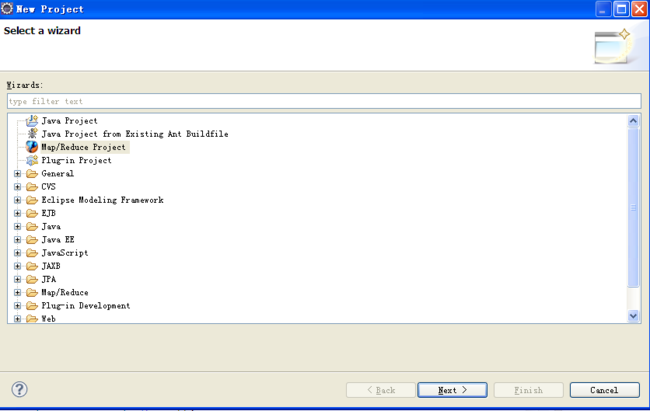项目需求:
需要统计一下线上日志中某些信息每天出现的频率,举个简单的例子,统计线上每天的请求总数和异常请求数。线上大概几十台
服务器,每台服务器大概每天产生4到5G左右的日志,假设有30台,每台5G的,一天产生的日志总量为150G。
处理方案:
方案1:传统的处理方式,写个JAVA日志分析代码,部署到每台服务器进行处理,这种方式部署起来耗时费力,又不好维护。
方案2:采用Hadoop分布式处理,日志分析是Hadoop集群系统的拿手好戏。150G每天的日志也算是比较大的数据量了,搭个简
单的Hadoop集群来处理这些日志是再好不过的了。
Hadoop集群的搭建:
参见这两篇文章:http://www.cnblogs.com/cstar/archive/2012/12/16/2820209.html
http://www.cnblogs.com/cstar/archive/2012/12/16/2820220.html
我们这里的集群就采用了两台机器,配置每台8核,32G内存,500G磁盘空间。
日志准备工作:
由于日志分散在各个服务器,所以我们先需要将所有的日志拷贝到我们的集群系统当中,这个可以通过linux服务器下rsync或者scp
服务来执行。这里我们通过scp服务来拷贝,由于都是内网的机器,所以拷贝几个G的日志可以很快就完成。下面是拷贝日志的脚本,脚本
还是有一些需要注意的地方,我们只需要拷贝前一天的数据,实际保存的数据可能是好几天的,所以我们只要把我们需要的这一天的数据
SCP过去就可以了。
#!/bin/sh
workdir=/home/myproj/bin/log/
files=`ls $workdir`
pre1date=`date +
"%Y%m%d"
-d
"-1 days"
`
pre1date1=`date +
"%Y-%m-%d"
-d
"-1 days"
`
curdate=`date +
"%Y%m%d"
`
hostname=`uname -n`
echo $pre1date $curdate
uploadpath=
"/home/hadoop/hadoop/mytest/log/"
$pre1date1
"/"
$hostname
echo $uploadpath
cd $workdir
mintime=
240000
secondmintime=
0
for
file in $files;
do
filedate=`stat $file | grep Modify| awk
'{print $2}'
|sed -e
's/-//g'
`
filetime=`stat $file | grep Modify| awk
'{print $3}'
|cut -d
"."
-f1 | sed -e
's/://g'
| sed
's/^0\+//'
`
if
[ $filedate -eq $curdate ]; then
if
[ $filetime -lt $mintime ]; then
secondmintime=$mintime
mintime=$filetime
fi
fi
done
echo
"mintime:"
$mintime
step=
1000
mintime=`expr $mintime + $step`
echo
"mintime+1000:"
$mintime
for
file in $files;
do
filedate=`stat $file | grep Modify| awk
'{print $2}'
|sed -e
's/-//g'
`
filetime=`stat $file | grep Modify| awk
'{print $3}'
|cut -d
"."
-f1 | sed -e
's/://g'
| sed
's/^0\+//'
`
filename=`echo $file | cut -c
1
-
8
`
startchars=
"info.log"
#echo $filename
if
[ $filename == $startchars ]; then
if
[ $filedate -eq $pre1date ]; then
scp -rp $file dir
@antix2
:$uploadpath
#echo $file
elif [ $filedate -eq $curdate ]; then
if
[ $filetime -lt $mintime ]; then
scp -rp $file dir
@antix2
:$uploadpath
#echo $file
fi
fi
fi
#echo $filedate $filetime
done
|
MapReduce代码
接下来就是编写MapReduce的代码了。使用Eclipse环境来编写,需要安装hadoop插件,我们hadoop机器采用的是1.1.1版本,所以插
件使用hadoop-eclipse-plugin-1.1.1.jar,将插件拷贝到eclipse的plugins目录下就可以了。然后新建一个MapReduce项目:
工程新建好了然后我们就可以编写我们的MapReduce代码了。
import java.io.IOException; import java.text.SimpleDateFormat; import java.util.Date; import org.apache.hadoop.conf.Configuration; import org.apache.hadoop.fs.FileSystem; import org.apache.hadoop.fs.Path; import org.apache.hadoop.io.IntWritable; import org.apache.hadoop.io.LongWritable; import org.apache.hadoop.io.Text; import org.apache.hadoop.mapreduce.Job; import org.apache.hadoop.mapreduce.Mapper; import org.apache.hadoop.mapreduce.Reducer; import org.apache.hadoop.mapreduce.lib.input.FileInputFormat; import org.apache.hadoop.mapreduce.lib.output.FileOutputFormat; import org.apache.hadoop.util.GenericOptionsParser; public class LogAnalysis { public static class LogMapper extends Mapper<LongWritable, Text, Text, IntWritable>{ private final static IntWritable one = new IntWritable(1); private Text word = new Text(); private Text hourWord = new Text(); public void map(LongWritable key, Text value, Context context ) throws IOException, InterruptedException { String line = value.toString(); SimpleDateFormat formatter2 = new SimpleDateFormat("yy-MM-dd"); java.util.Date d1 =new Date(); d1.setTime(System.currentTimeMillis()-1*24*3600*1000); String strDate =formatter2.format(d1); if(line.contains(strDate)){ String[] strArr = line.split(","); int len = strArr[0].length(); String time = strArr[0].substring(1,len-1); String[] timeArr = time.split(":"); String strHour = timeArr[0]; String hour = strHour.substring(strHour.length()-2,strHour.length()); String hourKey = ""; if(line.contains("StartASocket")){ word.set("SocketCount"); context.write(word, one); hourKey = "SocketCount:" + hour; hourWord.set(hourKey); context.write(hourWord, one); word.clear(); hourWord.clear(); } if(line.contains("SocketException")){ word.set("SocketExceptionCount"); context.write(word, one); hourKey = "SocketExceptionCount:" + hour; hourWord.set(hourKey); context.write(hourWord, one); word.clear(); hourWord.clear(); }
} } public static class LogReducer extends Reducer<Text,IntWritable,Text,IntWritable> { private IntWritable result = new IntWritable(); public void reduce(Text key, Iterable<IntWritable> values, Context context ) throws IOException, InterruptedException { int sum = 0; for (IntWritable val : values) { sum += val.get(); } result.set(sum); context.write(key, result); } } public static int run(String[] args) throws Exception{ Configuration conf = new Configuration(); String[] otherArgs = new GenericOptionsParser(conf, args).getRemainingArgs(); if (otherArgs.length != 2) { System.err.println("Usage: loganalysis <in> <out>"); System.exit(2); } FileSystem fileSys = FileSystem.get(conf); String inputPath = "input/" + args[0]; fileSys.copyFromLocalFile(new Path(args[0]), new Path(inputPath));//将本地文件系统的文件拷贝到HDFS中 Job job = new Job(conf, "loganalysis"); job.setJarByClass(LogAnalysis.class); job.setMapperClass(LogMapper.class); job.setCombinerClass(LogReducer.class); job.setReducerClass(LogReducer.class); // 设置输出类型 job.setOutputKeyClass(Text.class); job.setOutputValueClass(IntWritable.class); FileInputFormat.addInputPath(job, new Path(inputPath)); FileOutputFormat.setOutputPath(job, new Path(otherArgs[1])); Date startTime = new Date(); System.out.println("Job started: " + startTime); int ret = job.waitForCompletion(true)? 0 : 1; fileSys.copyToLocalFile(new Path(otherArgs[1]), new Path(otherArgs[1])); fileSys.delete(new Path(inputPath), true); fileSys.delete(new Path(otherArgs[1]), true); Date end_time = new Date(); System.out.println("Job ended: " + end_time); System.out.println("The job took " + (end_time.getTime() - startTime.getTime()) /1000 + " seconds."); return ret; } public static void main(String[] args) { try { int ret = run(args); System.exit(ret); } catch (Exception e) { e.printStackTrace(); System.out.println(e.getMessage()); } } }
部署到Hadoop集群:
代码完成后测试没有问题后,部署到集群当中去执行,我们有几十台服务器,所以每台的服务器的日志当成一个任务来执行。
workdir="/home/hadoop/hadoop/mytest" cd $workdir pre1date=`date +"%Y-%m-%d" -d "-1 days"` servers=(mach1 mach2 mach3 ) for i in ${servers[@]};do inputPath="log/"$pre1date"/"$i outputPath="output/log/"$pre1date"/"$i echo $inputPath $outputPath echo "start job "$i" date:"`date` hadoop jar LogAnalysis.jar loganalysis $inputPath $outputPath echo "end job "$i" date:"`date` done
